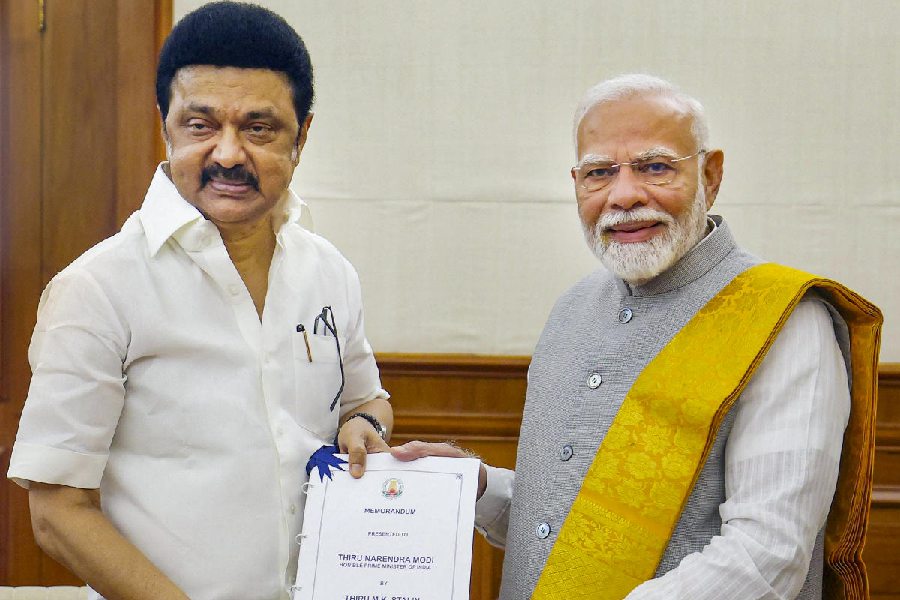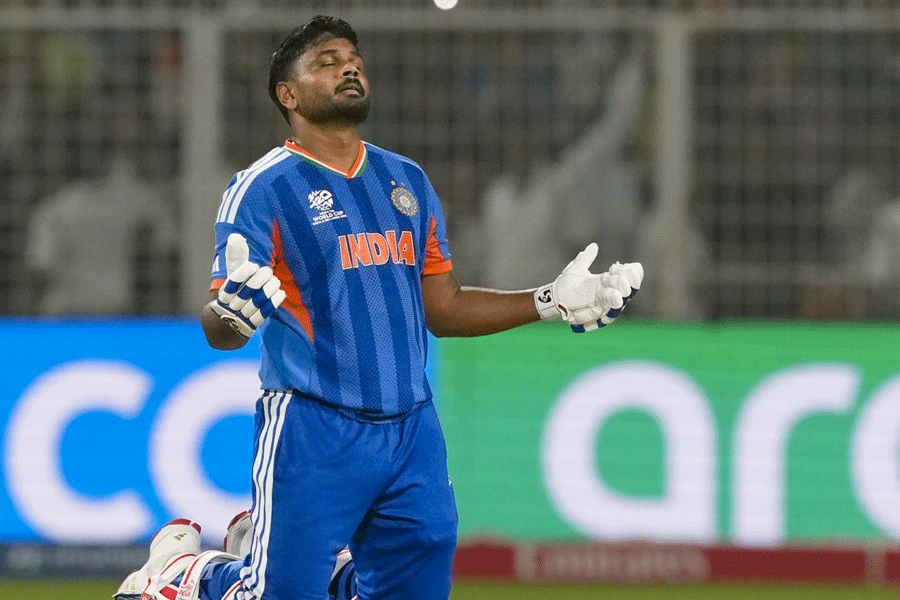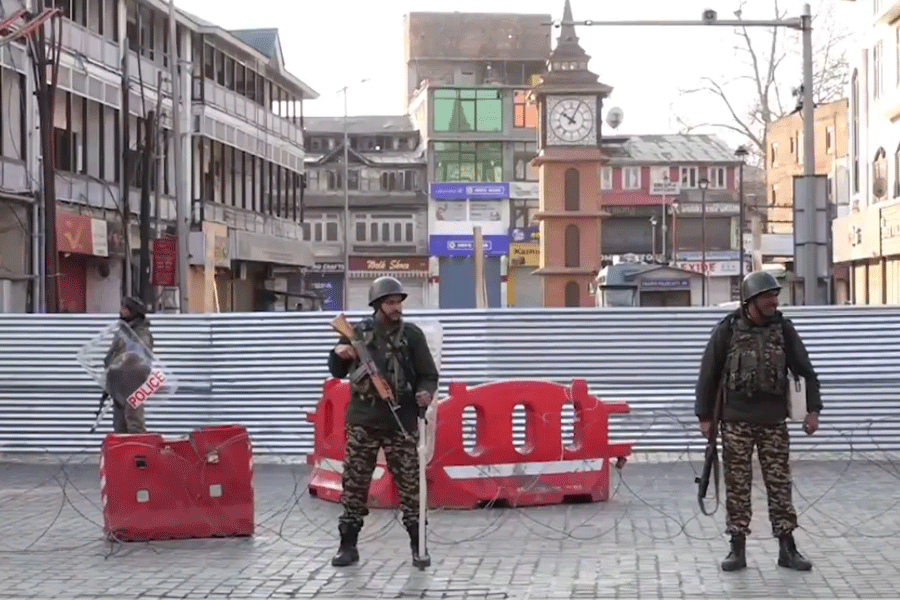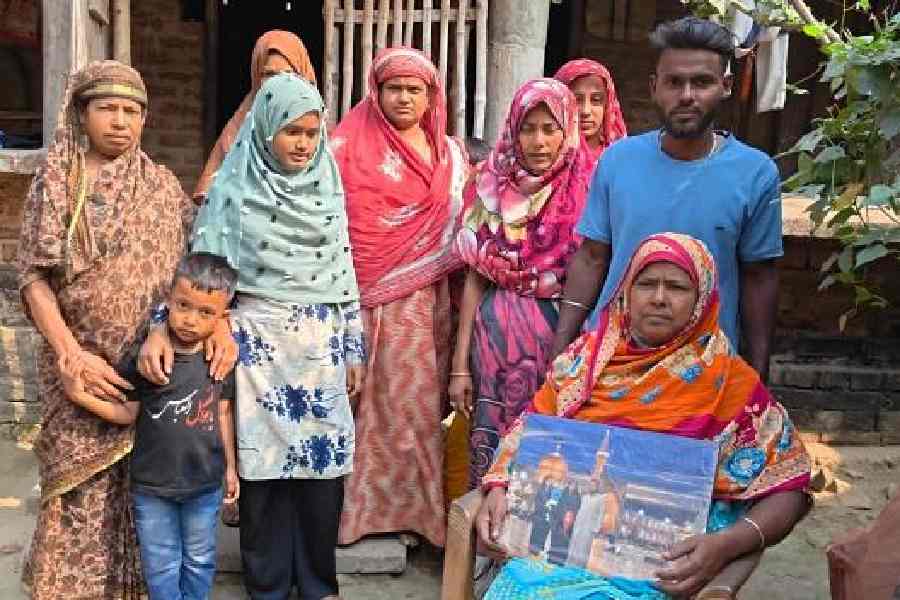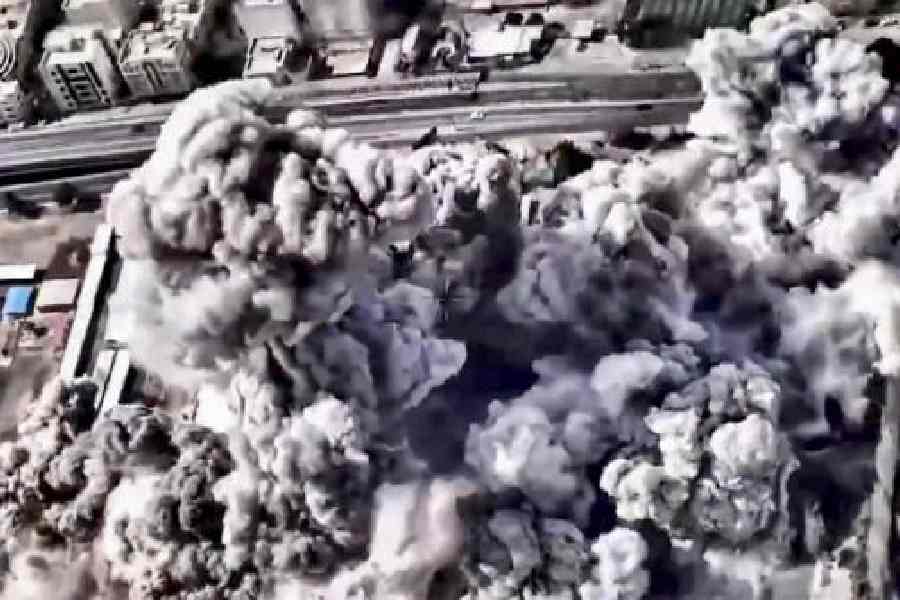Cricket and politics are the nation’s twin obsessions. Little wonder then that the prime minister, Narendra Modi, urged the chief ministers who had come to attend the 10th governing council meeting of the NITI Aayog to emulate Team India and play alongside the Centre to hasten the speed of national development. That federal unity is an asset in the cause of meeting India’s development goals cannot be disputed.
Mr Modi’s point is thus well taken. But the problem lies in the shadow that falls between intent and execution in this context. That the NITI Aayog meeting was given a miss by the chief ministers of Bengal, Karnataka, Kerala — the Opposition is in power in these states — while two of their peers, the chief ministers of Tamil Nadu and Jharkhand, used the platform to raise the demand for a greater share of Central tax revenues for states do not augur well for the federal spirit that is much diminished in New India. The Opposition blames Mr Modi’s regime for this erosion: the unilateral passage of bills, mass suspension of members of the Opposition in 2023, prejudicial conduct of Centrally-appointed governors, holding back of welfare funds to states as well as the disproportionate targeting of Opposition politicians by Central investigative agencies are cited as evidence of the Centre’s vindictive intent. Mr Modi’s government, in turn, blames the Opposition for repeatedly disrupting House proceedings and being uncooperative in nature. The recent military crisis against Pakistan may have prompted the Opposition to stand united with the government but such solidarity has been rare.
The Centre’s authoritarian ways and a cornered Opposition’s occasional rigid stance, however, are not the principal reasons for the crisis in India’s federal edifice. There is a deeper cause that must not go unnoticed. This concerns the enfeeblement of the principle of cooperative federalism itself on account of the ascendancy of competitive electoral politics. Consequently, the constitutional envisionment of federalism as a fine balance between cooperation and constructive contestation has increasingly come under strain. That the deepening of democracy in India — elections are popular, widely-contested engagements — has coincided with the impoverishment of federalism, a principle that is central to the functioning of a robust democracy, is an irony. The betterment of ties between government and Opposition is a necessity. It must not be reduced to opportunistic rhetoric by either side.

